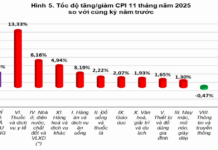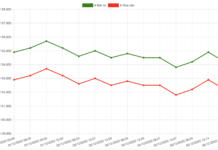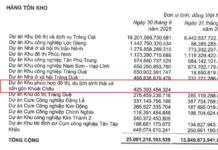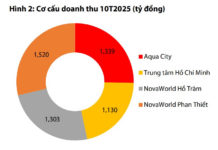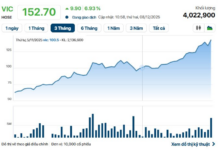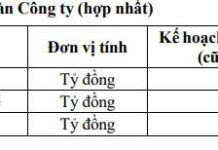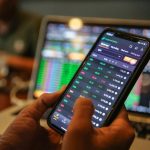The stock market opened the first session of the week in the green. However, strong selling pressure in the latter half of the afternoon session caused the VN-Index to turn around and close lower. At the close, the VN-Index fell 0.93 points to 1,279.82. Foreign trading was a downside as they net sold a surge of VND1,914 billion in the market.
In this context, securities companies’ proprietary trading recorded a net surge of VND987 billion on the three exchanges.

On the HoSE, securities companies’ proprietary trading net bought VND785 billion, of which they net sold VND219 billion on the matching channel but net bought nearly VND1,005 billion on the negotiation channel.
Specifically, the strongest net buying by securities companies was in HDB and STB, with values of VND438 billion and VND309 billion, respectively, while SAB was also net bought for VND166 billion. In addition, stocks such as SCS, KDH, SBT, and KBC… were also net bought in the July 15 session.
On the other hand, HPG was the most net sold by securities companies with VND49 billion. The two stocks MSN and E1VFVN30 were net sold with values of VND28 billion and VND20 billion, respectively. This was followed by FPT, which was also net sold at around VND19 billion. The stocks that were net sold in today’s session also included a series of codes such as VPB, ACB, TCB, and VCB…
On the HNX, securities companies’ proprietary trading net sold VND4 billion, of which GKM was net sold at about VND5 billion, PVD was slightly net sold, while IDC was net bought at more than VND5 billion.
On UPCoM, securities companies’ proprietary trading net bought VND205 billion, with the focus on ACV, which was net bought for VND204 billion, and QTP was net bought for nearly VND2 billion.
Dragon Capital Chairman: “Long-term vision is needed, accepting necessary adjustments for a safer, more efficient, and higher quality market”
According to Mr. Dominic Scriven, Chairman of Dragon Capital, the role of the finance industry in the stock market will be significant in 2023 and possibly in 2024. The roles of other industries, such as real estate or consumer goods, will depend on their respective challenges.








